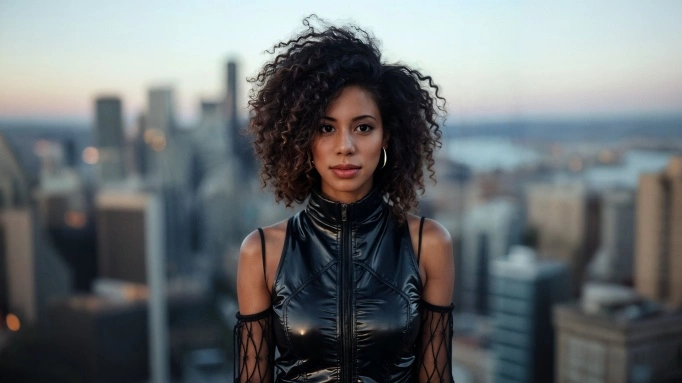
Interview: In Conversation with Jordana: Slay, Survival and Queer Visibility in Drum & Bass
With a legacy spanning more than three decades and accolades from the likes of Vibe and Mixmag, Jordana’s impact on electronic music is undeniable. Now, the iconic US-based producer, DJ and vocalist makes her debut on Imagine Audio with “Slay”—a defiant, dancefloor-ready anthem that leads the label’s 2025 Pride Month series. We caught up with her to discuss the track’s inspiration, the state of queer representation in drum and bass, and how Seattle’s inclusive rave scene is shaping a new chapter in her journey.
“Slay” is a fierce, confident statement—both musically and vocally. What was your vision for the track, and what did you want it to say during Pride Month?
My vision for the track was to create something that was both fun with a dancefloor vibe but also meaningful on multiple levels. From the start the title Slay represents fierceness in all of its forms. People forget that Pride Month is held in June commemorating the Stonewall riots and sacrifices of pivotal figures like Marsha P. Johnson and Sylvia Rivera. With everything going on right now in the U.S., U.K. and elsewhere in the world where human rights for LGBTIA+ people are under relentless attack and trans people are being specifically targeted through legislation, I wanted to channel that legacy, especially Marsha's defiant energy into a song I knew would be released during Pride. I wanted to make something that was full of energy and fun in defiance of those who, among other things, want to silence us, erase us from history and take away our joy. Seattle has a vibrant underground rave culture which is heavily queer and trans influenced. Events here are often put together by trans and queer people leading to a scene which is very inclusive and I feel is very unique in the Drum & Bass world, so I wanted to big that up as well.
Personally, the line "My name's Jordana and I'm here to Slay" is both an introduction and declaration of intent, resurgence and beyond that it's a statement which I think any trans person who has ever been deadnamed and anyone who has ever been bullied due to who they are can relate to. It's saying to those bullies, "YOU do NOT define me, *I* define me. This is who I am and I WILL be fierce."
Also, many may not know this but my first dance music experiences were as a teen at LGBTQIA+ youth nights in Pittsburgh. That early exposure to 140 BPM breakbeat hardcore which later evolved into Jungle, inspired me to become a producer and DJ. So Slay is also a tribute to the drag, rave and club culture that shaped me.
After more than 30 years in the game, this marks your debut on Imagine Audio. How did that connection come about, and why was now the right time to join the label?
Seattle's epicenter of electronic dance and queer club culture, Kremwerk invited me to start a residency focused on D&B, UKG and Bass Music which was centered around women and LGBTQIA+ DJs and artists. That's how SpeKtra was born last year and we brought the amazing Flava D over for the launch of it. I had talked with Matia (B-Complex) online years previously. She remembered me as the only out trans person on the old Dogs on Acid Drum & Bass forum. By the time SpeKtra launched we had already discussed collaborating and had begun work on "Lorem Ipsum (ft. Zak Meow)" which came out in May on Imagine Audio. I knew when I started SpeKtra I wanted to find a way we could bring her over to headline. Stars aligned and we were able to have B-Complex perform at a special edition of SpeKtra during Kremwerk's massive Pride Weekend celebration last June. While here, she and I discussed music and common experiences we had within the D&B scene and through her Discord I learned more about the label Imagine Audio. I liked what they were about and quickly saw the label was something more than just a place for releases but they also were building a very inclusive community of artists, producers, DJs and fans which I felt was a good fit immediately. So it made a lot of sense to join Imagine Audio and grow together.
This track leans into a more commercial sound while staying true to your roots. Was that balance something you set out to strike from the start?
Not consciously. I've always listened to a wide range of music from underground to commercial pop stuff. I'm as influenced by that as much as anything within underground Drum & Bass. Though my sound has evolved over the years, I've always produced a diverse variety of styles. For instance, my 2nd album "Quality Rolls" featured a lot of Jump Up and drew some comparisons to the work of DJ Aphrodite. This was at a time when Jump Up was as commercial as some would say Dancefloor is now. So I've had commercial songs in the past, one of which propelled me to being the first out trans person on MTV in the U.S. in the late '90s. Also in the early 00's when living in London, I produced a lot of bootleg UKG remixes of commercial stuff under my alias "Lady J" so this wasn't really a radical change from my roots as my roots are long and varied and I never felt stuck to them or weighed down by expectations that I stick to any one particular root. So Slay isn't really a departure, it's a continued evolution of me as an artist, producer and DJ. Just another facet of a varied career. I never feel confined by a particular sound and I'm a firm believer in the philosophy of never stop learning and never stop evolving.
You’ve been hailed as a pioneer, from being named by Vibe Magazine as one of the most respected US drum and bass producers to shaping history in Mixmag’s 2015 feature. Do you ever feel the weight of that legacy—or is it all fuel?
It's more fuel than weight at this point. Mass has become energy! That's not to say that I didn't feel the weight of it at times..At my lowest point that legacy felt like something someone else had achieved when I was so far removed from it in my day-to-day life. I had dissociated that much due to the depression of my living situation then and the lack of resources or even an idea of how to move forward again. But now I'm in a better place. Ultimately, though what I've done in the past is the past and while I value my legacy, I have never felt like "that's it, I can never do better, I can never go farther than that." Today, I see the legacy as something to build on, not be burdened by. I had my career derailed by a hate crime during the tour for my 3rd album at a time when I was ascending. The trauma from that was so damaging that it has taken years to recover. So that is also fuel on my journey today. I know what I achieved but more importantly, I also know what I still want to achieve. So I am driven by both that and the fact that I do want my legacy to be one in which I rebounded and thrived, despite some of the worst things which can happen to a person for no other reason than them being themselves.
Your voice on Slay adds so much power and identity. How important was it for you to step forward vocally on this record, rather than staying solely behind the production?
Thank you! I feel it was very important because of the personal nature of the song and what it represents, as well as the fact that a lot of people have never heard me before. One of the things which my manager back in the 90s had me do before the hate crime happened was work on my vocal ability with the producer Japhe Tejada, who was known for working with the artist Brandy, among others. So that's something I continued to develop through the years, even when I didn't have access to a computer or gear I could produce on, I could always work on vocal stuff. This track felt like a reintroduction, both musically and personally. So voicing it as an expression of that just felt right.
There’s a long-standing issue of underrepresentation in D&B—particularly for trans and queer artists. How do you see the landscape shifting, and what still needs to change?
You're right, it remains a long-standing issue and one which has to be actively addressed by the Drum & Bass community. The landscape has changed a little. It's shifting a little, but there is still a long way to go. I think there are a number of reasons for that, and I could go on for days about how bad it was and often still is, but I'm all about finding and offering solutions, not just talking about a problem. So as I think about this I will draw on my personal experiences to highlight some of the major issues I feel lead to the underrepresentation of queer and trans people in the D&B scene: 1) lack of visibility and 2) lack of support, advocacy and 3) lack of resources to help things change for the better.
With regards to visibility I think it may still be hard for someone who is queer or trans to see a place for themself in a scene where they've been historically hidden or minimized. When I became known as the first trans D&B producer/DJ there was no one else in D&B who was out as trans. I faced extreme transphobia and felt utterly alone. I had actually considered quitting D&B entirely and making house, but I knew that I had to persist in order for the next person like me to see my example and know there was a place for them in Drum & Bass. The only other queer person I knew in DnB at the time, and with whom I had the fortune of touring, was MC Chickaboo. However, no one felt comfortable coming out back then, and it wasn't until B-complex came out that there was another top-level D&B producer/DJ who was trans. Today, there is more queer and trans visibility, and we have amazing LGBTQIA+ artists like Flava D and Mandidextrous, as well as others. However, while things are shifting in a positive direction, compared to other genres, D&B still lags behind, and we are still sorely underrepresented.
Changing this requires action. Which brings me to the second reason I think this is still a problem: The scene's historic tolerance of bigotry. Unlike House, the D&B community for decades protected and even elevated bigoted people. Homophobia and transphobia were normalized and expected in this music. People being openly and extremely homophobic or transphobic didn't have even a negative impact on their standing within Drum & Bass until fairly recently. Even with the recent backlash against Twisted Individual for his blatant transphobia, I've STILL seen some people trying to make the same old excuses to not hold him accountable for it. So, not only does there need to be zero tolerance for transphobia and homophobia but in recognition that D&B has this very poor history, there needs to be active allyship and efforts on the part of everyone within the D&B community and ecosystem to combat homophobia, transphobia, misogyny and other bigotry not just on socials but also going beyond that by taking actions which will have meaningful positive long term effects and impact.
What follows are things which I believe artists/DJs, promoters, event organizers, venues and labels can do which can and I believe will lead to lasting change. I think the Global Trans Charter provides a good framework for what needs to be done and I'd urge all Drum & Bass promoters, labels, artists and DJs to give it a good read and ask themselves what they can do. There's a version of it for the UK and for the US. Personally I think we need artists who are strong allies as advocates not just in their socials but also in their music if they feel that's appropriate. While I deeply appreciate anyone in D&B who advocates for a more inclusive scene on their socials, I have been extremely heartened to hear tracks like "Common Enemy" by Pythius & RIENK and "Find Your Rhythm" by Eva Lazarus & Ed Solo. Also as a trans artist myself I've taken on the task of mentoring and giving opportunities to other LGBTQIA+ artists coming up. For instance, back in 2002, despite a lot of resistance from the station owner, I gave Lady Sovereign her first radio appearance when she MCed during my show on London's Flex FM. So you never know how far someone you help, support or give an opportunity to can go. Promoters and event organizers should also keep this in mind when looking at who could fill some of those opening slots on a lineup. I know of a lot of upcoming queer or trans D&B DJs and producers who are extremely talented who should be considered for larger events and festivals. I am certain that many can go as far as they want to if given the support and resources that such opportunities open up. Venue owners should be open to D&B nights which are queer centered and/or created by queer or trans promoters and they should put into practice the suggestions for venues outlined in the Global Trans Charter so that when queer and trans people arrive they feel welcome. This benefits EVERYONE. I have had people come up to me who were queer or trans who told me they never got Drum & Bass or saw a place for them within it until they heard my music or went to an event I played. These people became new Drum & Bass fans due to both increased visibility of a trans DJ/Producer as well as proactive moves on the parts of event organizers, promoters, venue owners and labels to help make that visibility possible. Expanding the amount of people who love Drum & Bass to include people who haven't previously been or felt included adds to the vibrancy of the D&B community, the sound and its continued evolution. I know that here in Seattle there even seems to be emerging underground genres of Jungle and DnB which have a lot of trans and queer influences from other genres more commonly associated with the LGBTQIA+ community such as Ballroom and Jersey Club. So my final advice would be that labels should be open to such experimentation from queer and trans artists expressing their authentic selves. Drum & Bass has always been a genre which incorporates influences from everywhere, that's one of its biggest strengths, which has given it longevity as it constantly evolves. That's why I love it so much. This music IS for everyone and there have always been queer and trans people as a part of it from the beginning whether one knew it or not. Finally, I'd urge fans of this music to support queer and trans people when they see a release or their name on a line up. We all have a role to play in making the scene more inclusive.
Imagine Audio are marking Pride Month with a full series of LGBTQ+ releases. How does it feel to lead the charge on this campaign, and what does visibility through music mean to you personally?
It's truly an honor!!! I feel incredibly humble. Imagine Audio is full of amazing talent, both established and emerging artists, so I don't take this at all for granted. I'm grateful to B-Complex and Zak for making this happen. Personally, it means a lot to be involved with anything Pride-related. So it's absolutely wonderful being a part of a label which not only has this campaign but also has my release leading it. It means so much to me emotionally, because for so long, I wasn't really included in Pride events as Jungle and Drum & Bass were not seen as a queer genres.
So I wasn't queer enough to be included in Pride events while at the same time I was being actively excluded from some Drum & Bass spaces due to transphobia. To this day, I have yet to play in any city's official Pride event, though I have performed at Pride at Kremwerk in Seattle multiple times and will again this year. As for visibility through music, as I mentioned earlier, it means a LOT to me personally because I have seen where my own visibility has inspired others. B-Complex has said that seeing me posting on the Dogs on Acid D&B forum as an open and out trans woman helped her come out. I was also booked at a rave with Honey Dijon before she came out as trans, and she asked me what my experience was like since I was the only trans person out in the US dance music scene at that time. I also received many DMs and emails over the years from trans people who told me they felt inspired by my life and music. The letters from those who told me I gave them hope to continue when they were in a very dark place really hit close to home, as someone who has also dealt with depression at times in my life. I've seen firsthand how visibility transforms lives, and the more visible queer or trans D&B artists are, the more comfortable the next queer or trans D&B artist, DJ, or producer is in our scene. Visibility through music matters tremendously.
Having worked with artists like Armand Van Helden and remixed icons like Blondie, how does Slay fit into your wider story as an artist?
In 1994, I was contacted online on the very early internet by an A&R person for EMI/Chrysalis about a remix project they were doing of a bunch of classic Blondie songs. I hadn't even made my first album yet! I just had a bunch of limited-run (less than 500 copies) demo cassettes I sold at raves I performed at, so I was pretty surprised when they picked me as an emerging artist to remix Blondie's song "Atomic" on a 1995 release with Armand Van Helden. That vinyl and CD single was my very first official release on any record label, and both are super rare finds today. I wasn't super confident in my production abilities then, as I was just starting out, and there were no tutorials or anything to learn "How to make Drum & Bass" as there are now. Literally, we were all figuring it out for ourselves, especially in the U.S. at that time. I can't even listen to that remix today as I hear all of the mistakes and things I didn't know lol! It's the total opposite with Slay. Personally as an artist I feel with Slay I am starting to live up to the potential I've always had but now with better knowledge, better tech, with more support both within and beyond Drum & Bass and the confidence that has given me to finally be able to more fully express myself, I know that will be a release I'll very proud of many years from now.
From Seattle to the world—how has your environment influenced your approach to drum and bass, especially at this point in your career?
Seattle has the highest per-capita trans population of any city in the US as it is one of the most trans and queer friendly places in the U.S.. As a result trans people have moved here from other more repressive parts of the U.S. So here in Seattle our scene is very queer, very trans, very inclusive. For instance the Tim Reaper show here I recently played had many trans and queer people in attendance. That's a result of a culture of inclusivity where we are an integral part of the D&B scene. Through the support of the massive multi-floor, trans owned club complex Kremwerk which has amazing local trans D&B DJs like Reverend Dollars, Mirin Doja, Eximious and Juno the Beloved to the underground rave scene where queer and women centered D&B collectives like Emergence and the trans led Impact! and Bimbo Hypnosis hard dance and DnB all-nighters are frequent, our scene is not just LGBTQIA+ inclusive but often queer or trans lead and driven as many promoters and organizers themselves are trans or queer. These events build and maintain community, provide opportunities for emerging talent and provide joy to people during what are now very dark times. We've carved out a zone, an oasis here in Seattle, not just for LGBTQIA+ people to feel safe but for ALL people to truly feel free to enjoy the bass regardless of origin, identity or expression. I believe one of the best things we can do to resist is to persist. For us, when the very core of who we are is under attack, existence IS resistance. Finding community, finding joy and thriving is resistance. And persistence is doing ALL of that fearlessly. That means we never stop dancing, never stop experiencing joy through music, never become isolated, and never feel alone or hidden like some want us to be.
I've always been influenced by where I live, and I've lived out here since 2006. That all has had an obvious influence on my approach to what I produce. I love dancefloor and anything ravey. That stuff, as well as the speedbass sound Mandidextrious pioneered and championed, always gets a great response here, but so does the more rock-oriented stuff like Toronto is Broken and Reebz, for example, as you might expect in a city with a long and storied rock history. We also like Jungle and deeper sounds, but Slay, as well as Trans and Proud, and the upcoming track Inside the Ride lean heavily into the dancefloor, ravey side of things.
What’s next after Slay?
There's an amazing D&B remix of Slay by Levia coming up soon after the original's release, and there is also a bass house version of Slay I'm putting the finishing touches on. One of the things I set out to do this year is remix my key releases in a different genre. So far, I've done this so with Slay and another release called Obsessed, which also has a bass house version. My goal is that no matter what bass-heavy music you're into, you'll eventually encounter one of my songs across the spectrum of bass-driven music, be it D&B, Bass House, UKG, etc. I've also submitted an energetic dancefloor D&B song called Eye of the Storm for an upcoming compilation on Imagine Audio.
Are there more vocal-led projects or collaborations in the pipeline?
Yes! I've got several vocal tracks in the pipeline. Some feature vocal samples like Eye of the Storm, Obsessed and Back for More, while others, such as Inside the Ride, feature my own vocals and tracks, such as Trans and Proud and Jump and Wind, will feature a mix of both. I've also explored and recorded vocals for a cover of Kosheen's classic, Catch. So those are some future vocal releases to look forward to. As far as collaborations, B-Complex and I have talked about some future ones which sound intriguing! You'll have to watch this space, follow us on our socials and keep it locked!
And finally… if you could take just one drum and bass track—by any artist, from any era—to a desert island, what would it be and why?
Oh this is such a tough question because there are SO many I'd want to take!!! A lot of that depends on my mood and what I'd want to listen to. But... if I had to pick just one, and this has absolutely nothing to do with being on the same label as her now, it would be "Beautiful Lies" by B-Complex. It's just so lush and beautiful while also combining many of the things I love about Drum & Bass. The melodies juxtaposition with the fierce beats and bass. The haunting vocals, everything. It's beyond a track, it's a song I can listen to, over and over again. Songs like that inspire me, and if that was the only Drum & Bass song I could listen to stranded on a desert island, I know I would never get sick of hearing it.
Huge thanks to Jordana for such an inspiring and in-depth conversation. “Slay” is out now on Imagine Audio—don’t miss our full release review here. With this powerful debut, Jordana leads Imagine Audio’s Pride Month series with purpose, pride, and pure dancefloor energy.


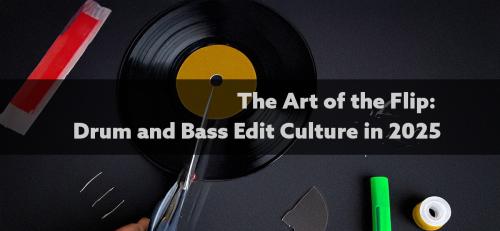
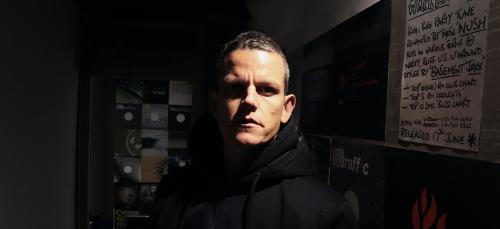
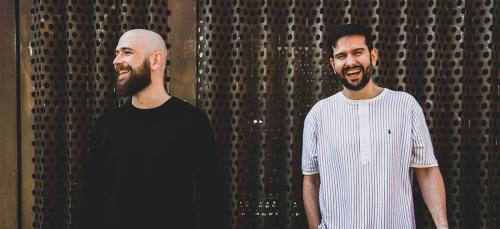




















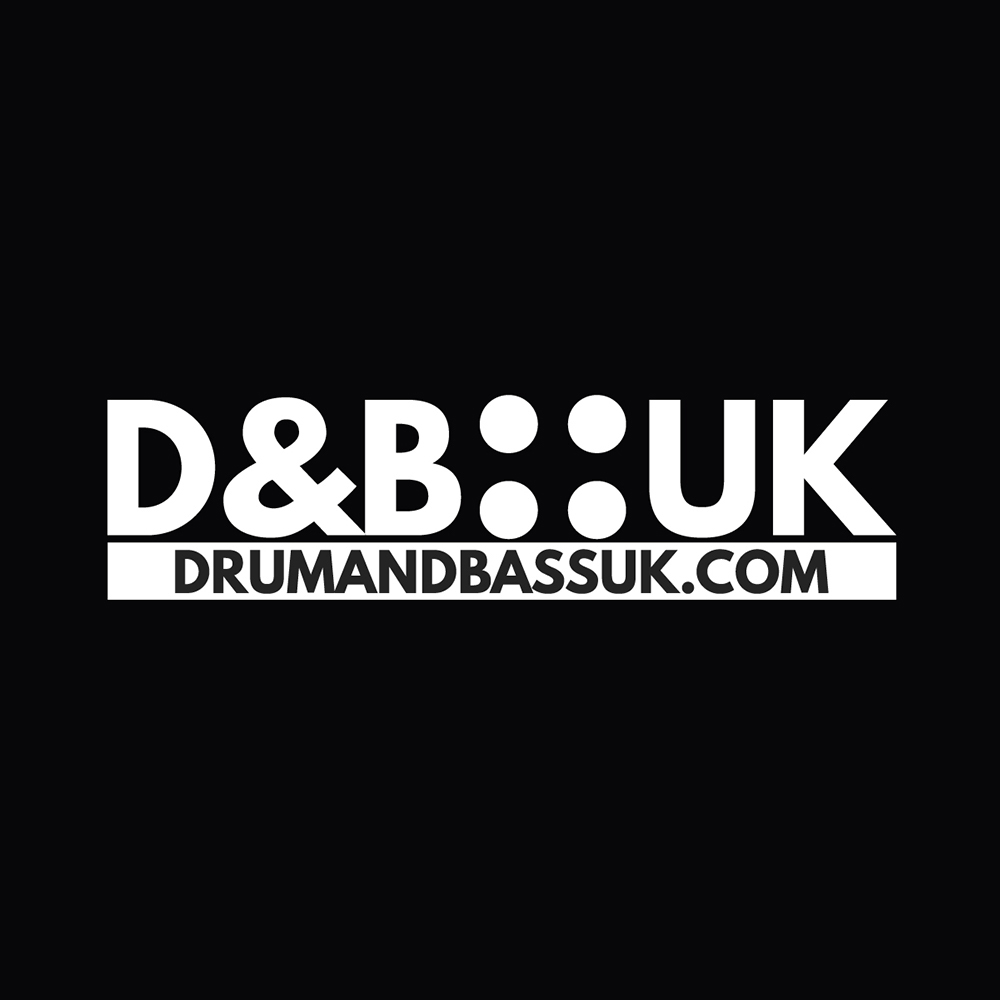
Comments
0